Tom's Hardware Verdict
The new RM750x is clearly a better PSU than the previous version, offering similar performance in a more compact chassis, along with a quieter fan profile. The cherry on top is the inclusion of two EPS connectors, which make this PSU compatible with more power-hungry platforms. If Corsair maintains a price tag under $110, its RM750x will remain a winner in the 750W category.
Pros
- +
Excellent ripple suppression
- +
Quiet across its operating range
- +
Solid build quality
- +
Fully modular
- +
2x EPS & 4x PCIe connectors
- +
Smaller dimensions than its predecessor
- +
10-year warranty
Cons
- -
In-cable capacitors
- -
Short distance between peripheral connectors
- -
No fan-test button
Why you can trust Tom's Hardware
Features & Specifications
Corsair's second-gen RM850x power supply impressed us in our recent review, so we were relatively confident that the company's updated RM750x would as well. As their names indicate, a mere 100W of maximum capacity separate the two models. And yet the RM750x costs $20 less, landing at $110.
Both mainstream PSUs sport a number of changes compared to the original RMx line-up, including a shallower depth measurement. Additionally, the new RM750x includes a second EPS connector to support high-end CPUs, whereas the first-gen implementation didn't. Corsair went out of its way to improve the RM750x's acoustic profile, too. As a result, this mainstream power supply is unmatched by its competition in our noise measurements. It should come as no surprise that we recommend the RM750x to enthusiasts shopping for a quiet, compact PSU with plenty of output capacity.
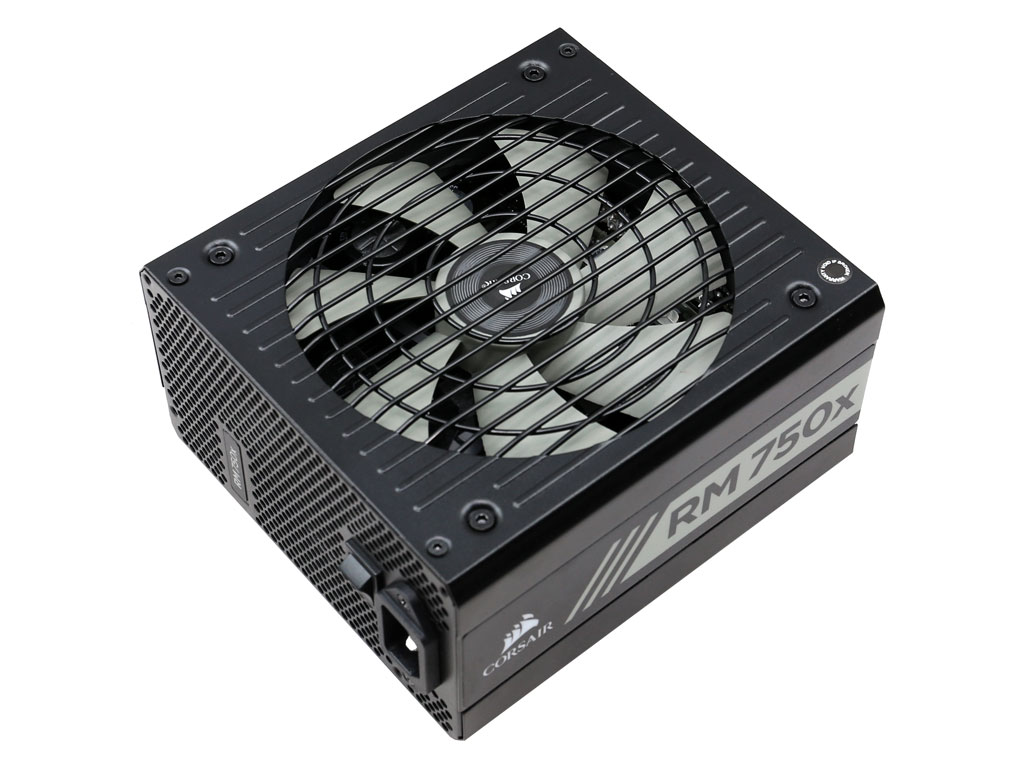
Of course, it helps that the 750W PSU category is especially popular, hitting a sweet spot of affordable pricing and ample headroom for high-end hardware. That's why we think all 750W power supplies should include a couple of EPS connectors, and why it was such a shame that the original RM750x only had one. Thankfully, Corsair addressed this apparent weakness. The shallower depth is a big deal as well, improving compatibility with smaller cases.
The higher efficiency levels offered by newer platforms minimize thermal loads. As a result, it's no longer necessary for PSU manufacturers to use enormous heat sinks. There are even models that don't use sinks at all on their secondary sides. The old and new RMx PSUs are both good examples of this.
Corsair's second-gen RM750x maintains the same external design, so the only way to distinguish it from its predecessor is comparing their size. The new model is 16cm deep, while the old one measures 18cm. Still, 16mm isn't enough to make the RM750x one of the shortest 750W PSUs out there; similar-capacity alternatives like the Seasonic Focus Plus Gold, SilverStone Strider Gold S V2 750W, and Cooler Master V750 are just 14cm long.
Specifications
| Manufacturer (OEM) | CWT |
| Max. DC Output | 750W |
| Efficiency | 80 PLUS Gold, ETA-A |
| Noise | LAMBDA-A+ |
| Modular | ✓ (Fully) |
| Intel C6/C7 Power State Support | ✓ |
| Operating Temperature (Continuous Full Load) | 0 - 50°C |
| Over Voltage Protection | ✓ |
| Under Voltage Protection | ✓ |
| Over Power Protection | ✓ |
| Over Current (+12V) Protection | ✗ |
| Over Temperature Protection | ✓ |
| Short Circuit Protection | ✓ |
| Surge Protection | ✓ |
| Inrush Current Protection | ✓ |
| Fan Failure Protection | ✗ |
| No Load Operation | ✓ |
| Cooling | 135mm Rifle Bearing Fan (NR135L) |
| Semi-Passive Operation | ✓ |
| Dimensions (WxHxD) | 150 x 86 x 162mm |
| Weight | 1.61kg (3.55lb) |
| Form Factor | ATX12V v2.4, EPS 2.92 |
| Warranty | 10 Years |
The RM750x achieves 80 PLUS Gold and ETA-A efficiency. Cybenetics also gives it a LAMBDA-A+ certification. A roughly 15 dB(A) overall noise output makes the RM750x one of the quietest 750W PSUs available. Although Seasonic's Focus Plus Gold and EVGA's 750 G3 are strong competitors, neither of them are as quiet.
Corsair's suite of protection features is complete, aside from OCP on the +12V rail, which is replaced by over-power protection on single-rail PSUs. Active cooling is handled by a 135mm fan with a rifle bearing. Finally, should something go wrong, Corsair covers the RM750x with a 10-year warranty.
Power Specifications
| Rail | 3.3V | 5V | 12V | 5VSB | -12V | |
|---|---|---|---|---|---|---|
| Max. Power | Amps | 25 | 25 | 62.5 | 3 | 0.8 |
| Watts | 150 | 750 | 15 | 9.6 | ||
| Total Max. Power (W) | 750 |
The RM750x's minor rails sport higher capacity than they need for a modern PC, while the +12V rail can deliver up to 62.5A. Corsair's 5VSB rail is beefy enough for a 750W PSU.
Cables & Connectors
| Modular Cables | ||||
|---|---|---|---|---|
| Description | Cable Count | Connector Count (Total) | Gauge | In Cable Capacitors |
| ATX connector 20+4 pin (600mm) | 1 | 1 | 18-20AWG | Yes |
| 4+4 pin EPS12V (650mm) | 2 | 2 | 18AWG | Yes |
| 6+2 pin PCIe (600mm+150mm) | 2 | 4 | 18AWG | Yes |
| SATA (520mm+110mm+110mm) | 3 | 9 | 18AWG | No |
| Four-pin Molex (450mm+100mm+100mm+100mm) | 2 | 8 | 18AWG | No |
| FDD Adapter (+100mm) | 1 | 1 | 20AWG | No |
| AC Power Cord (1430mm) - C13 coupler | 1 | 1 | 16AWG | - |
Corsair delivers two EPS connectors and four PCIe ones. The RM750x includes more peripheral connectors too, and we're glad to see the company implement eight four-pin Molex connectors since so many peripherals use them. Our only criticism is that the distance between those connectors is too small at only 10cm. We'd prefer 15cm, at least.
The ATX, EPS, and PCIe cables are equipped with capacitors to help reduce ripple on the PSU's outputs.
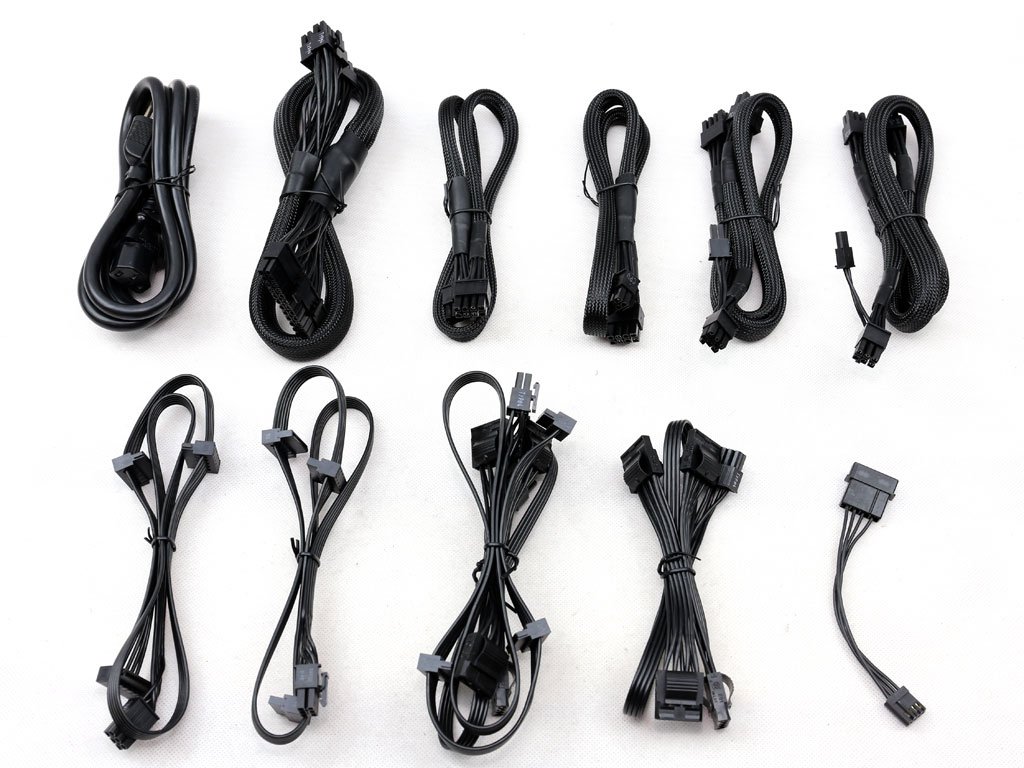
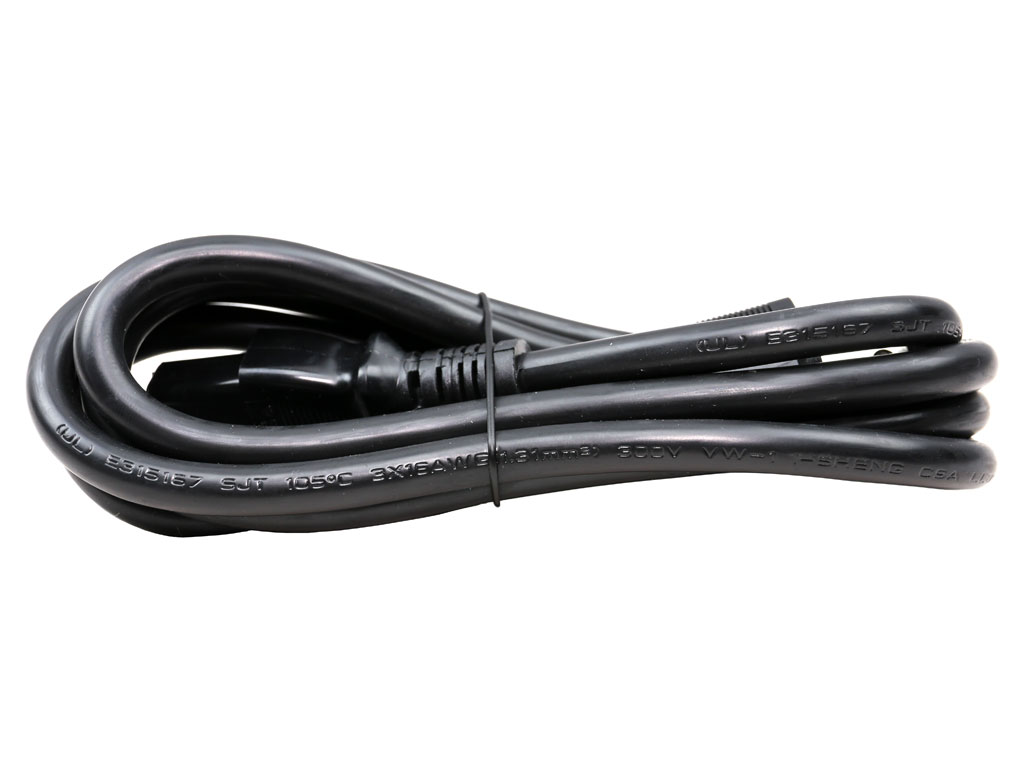
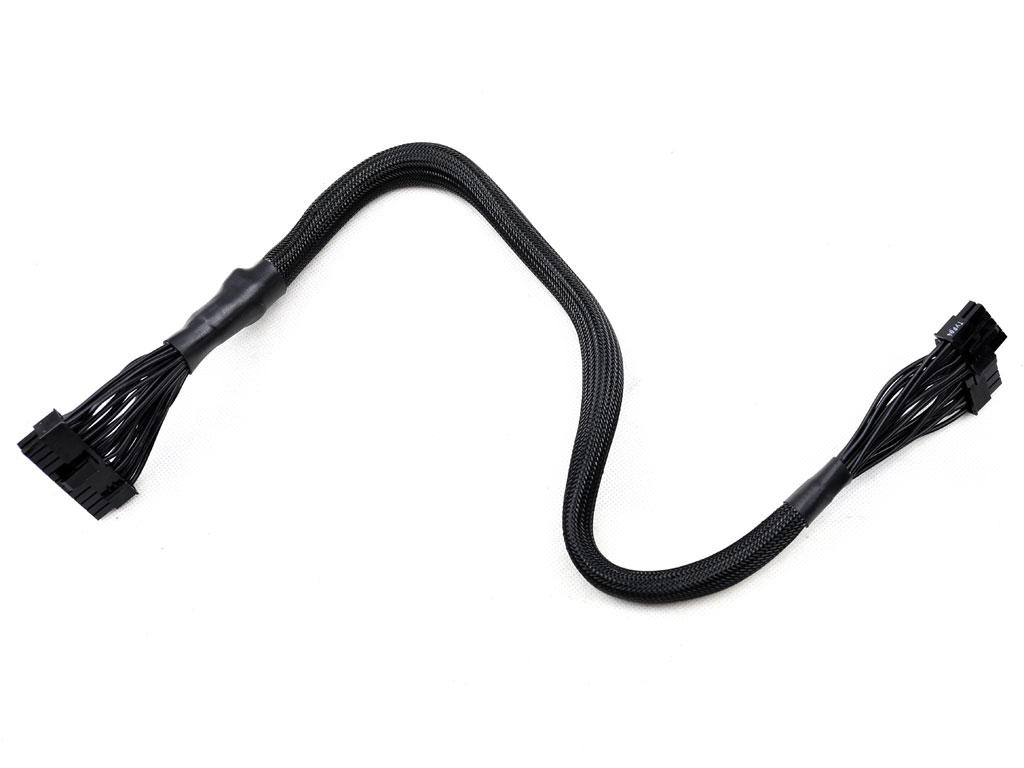
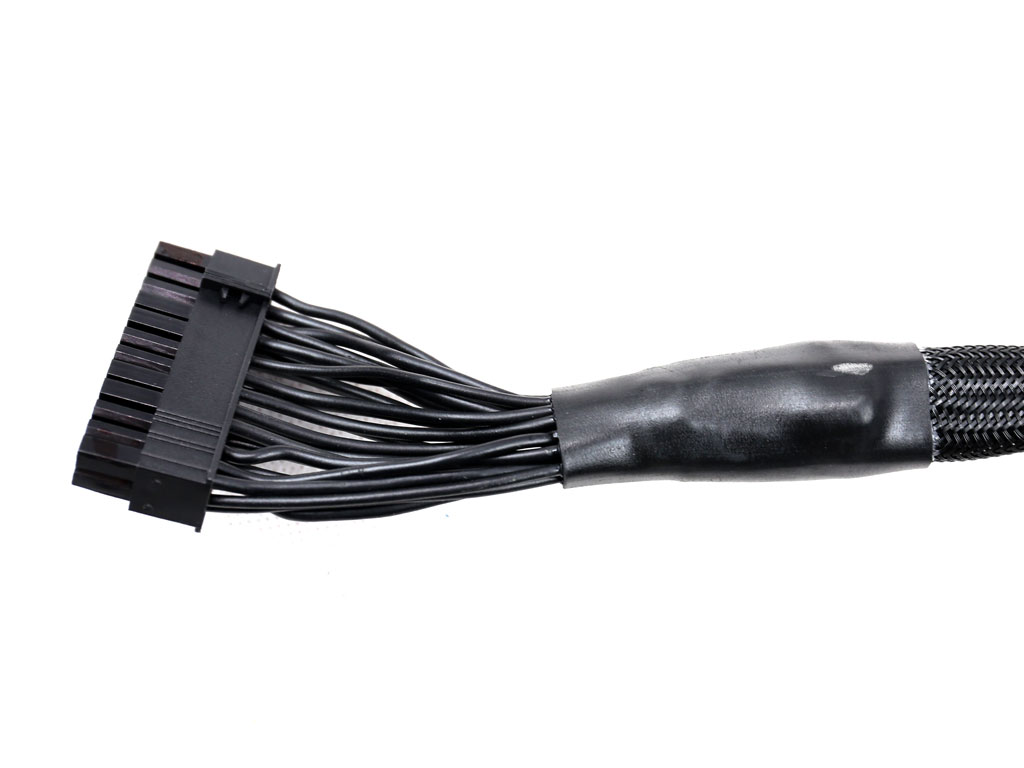
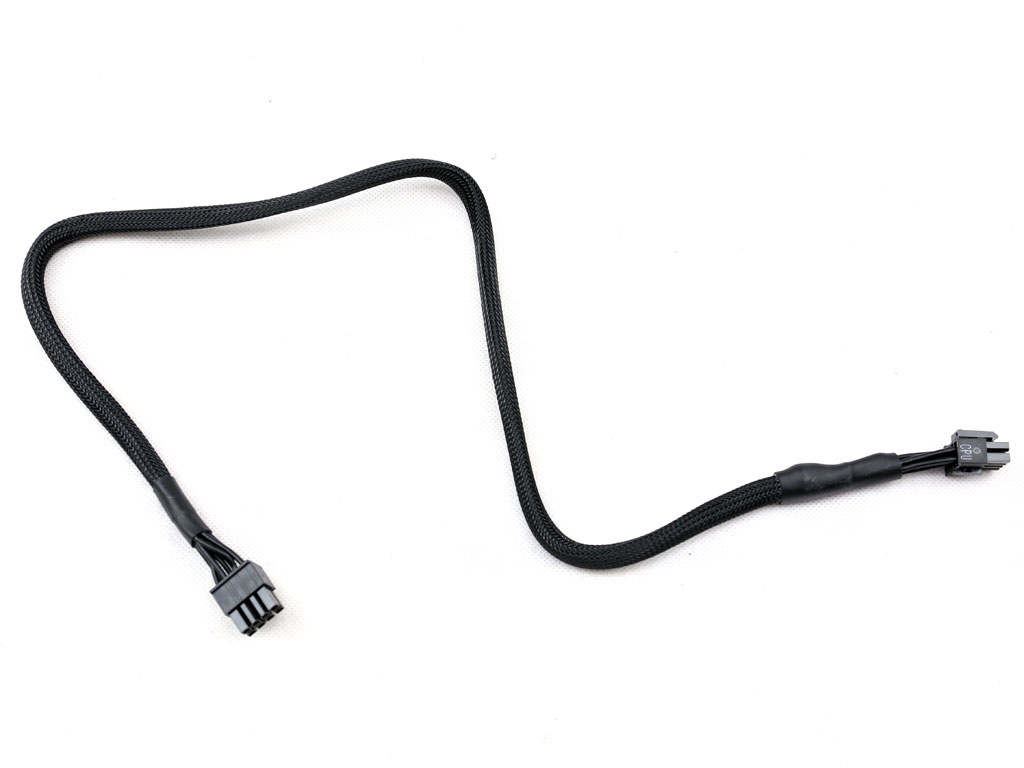
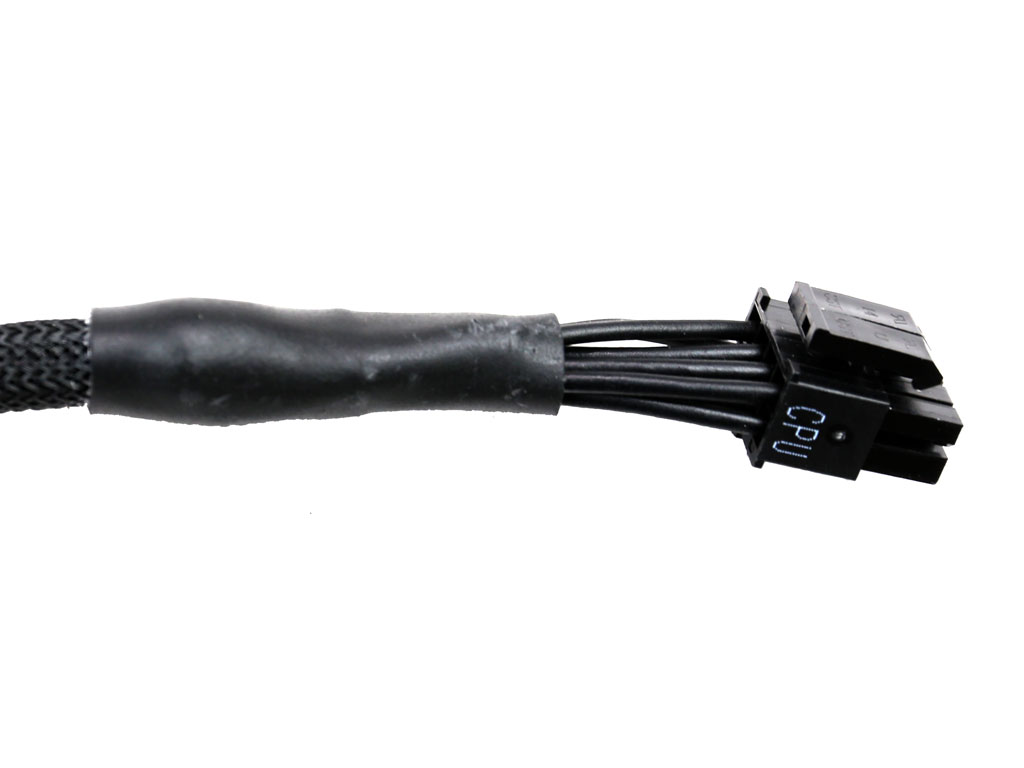
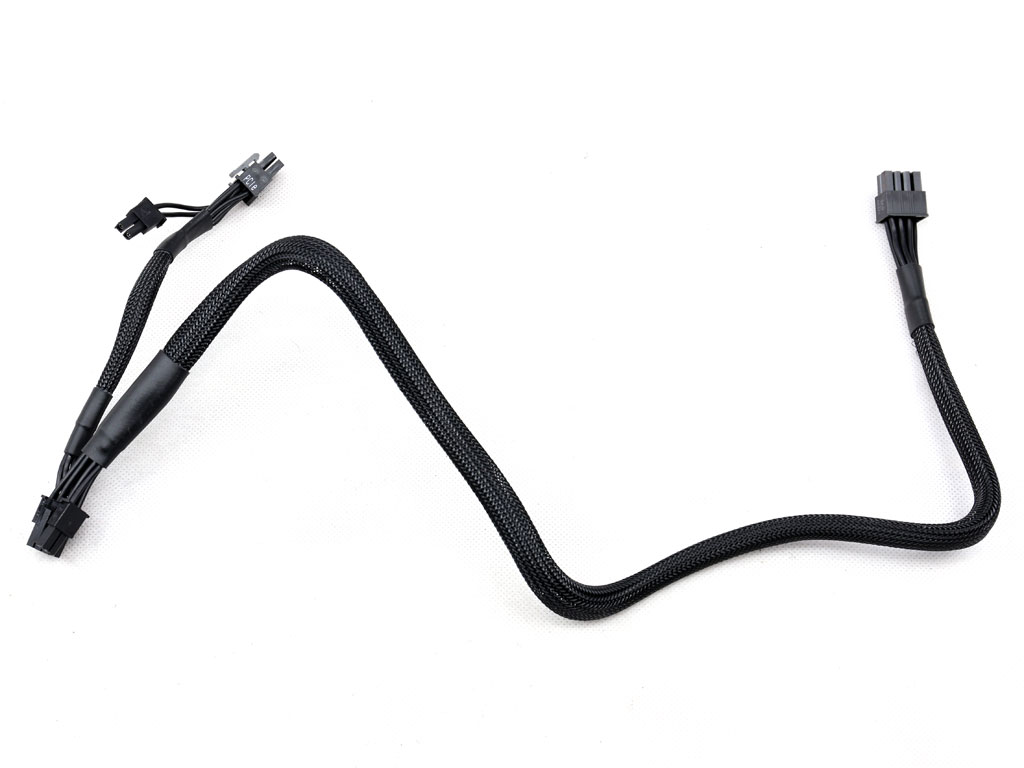
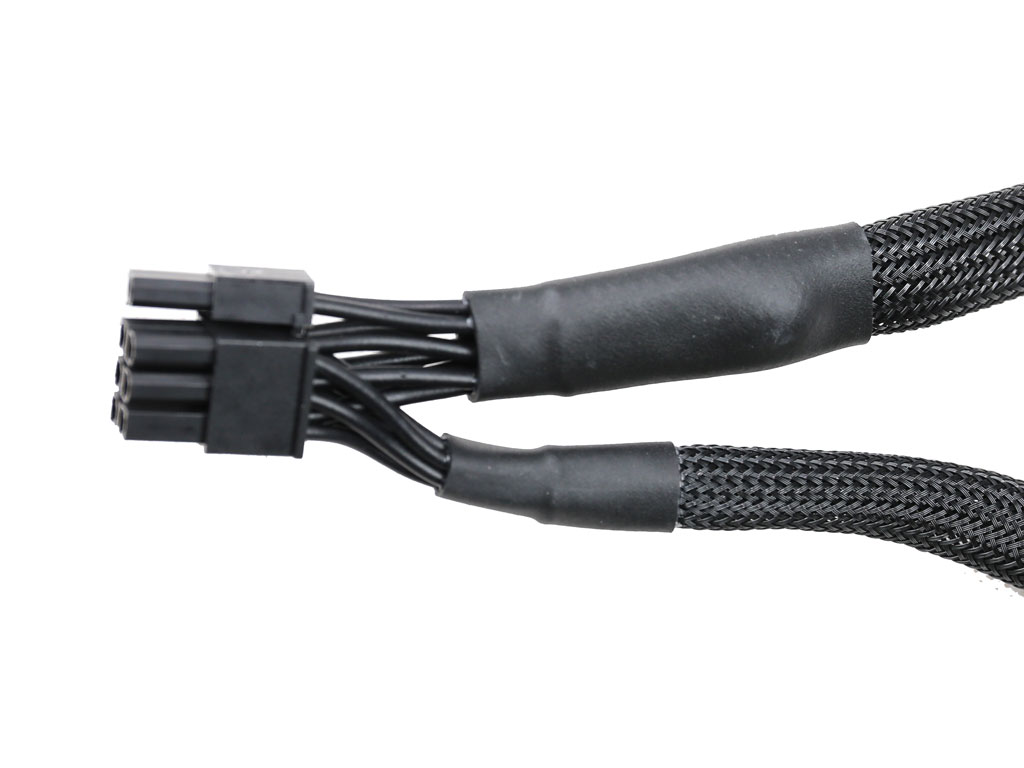
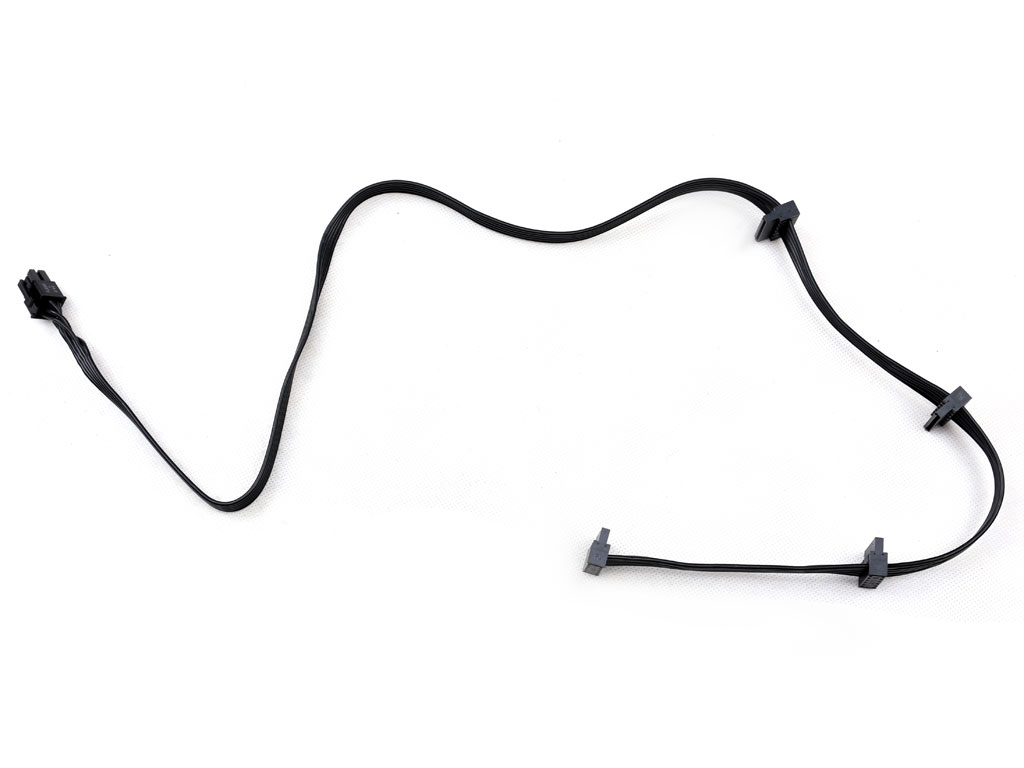
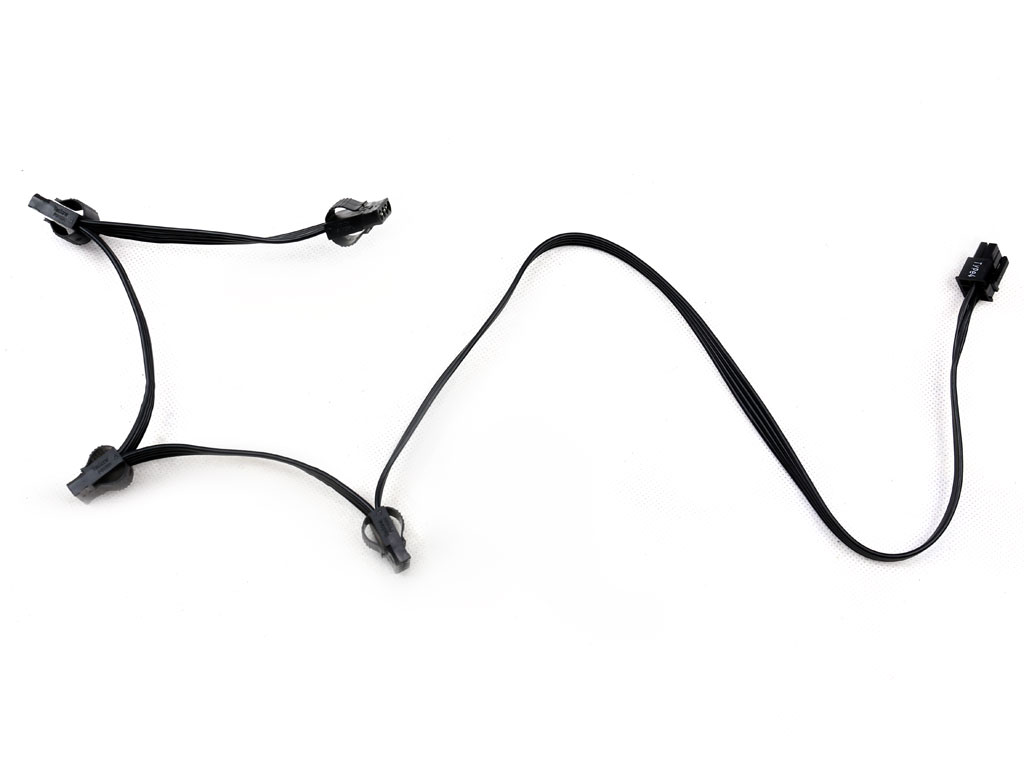
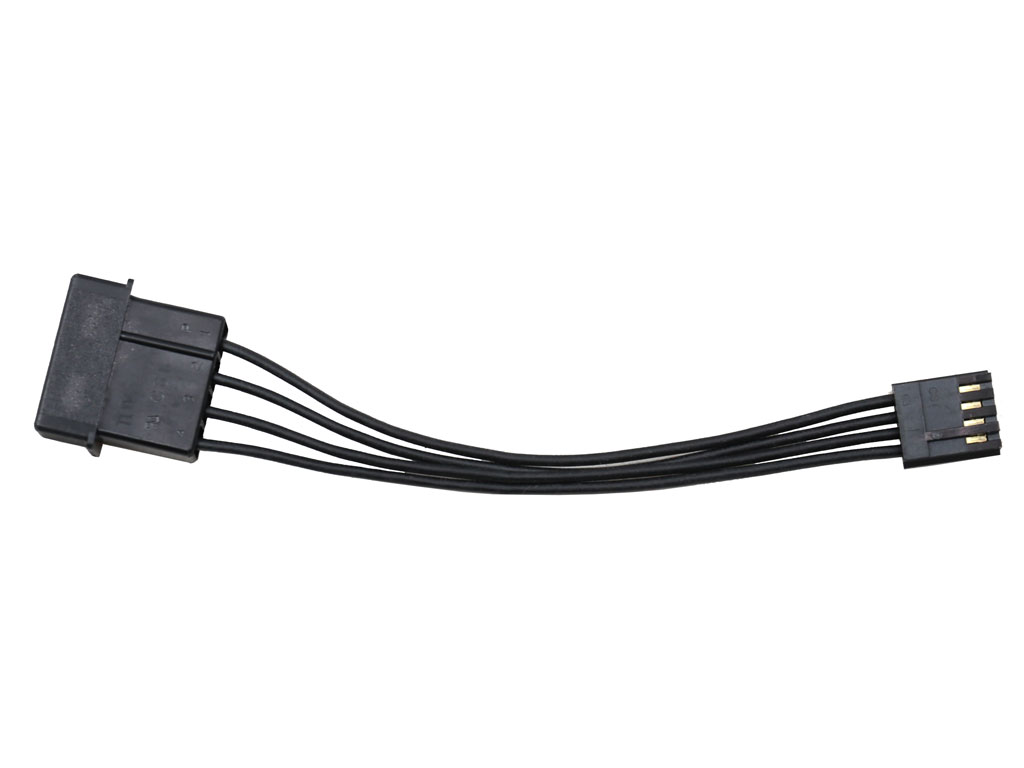
MORE: Best Power Supplies
MORE: How We Test Power Supplies
MORE: All Power Supply Content

Aris Mpitziopoulos is a contributing editor at Tom's Hardware, covering PSUs.
-
joedavies87 I bought one last year and did not realize that I would need two EPS cables for future builds. Moved to EVGA. Corsair was too late.Reply